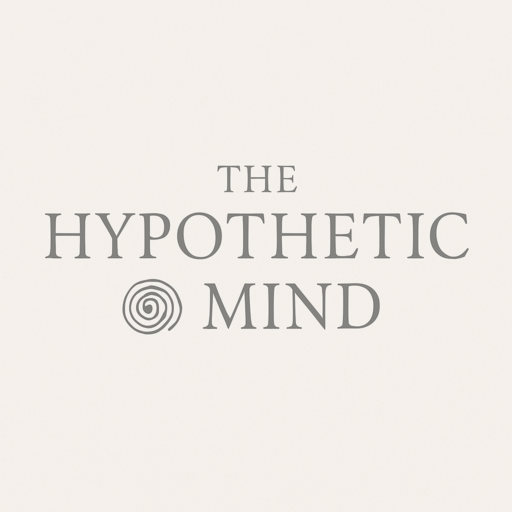
Is It Ever Okay to Spy on Someone for a Good Cause?
Imagine this: You suspect your best friend is in danger. Maybe it’s a toxic relationship, or perhaps they’re caught up in something illegal. The only way to know for sure is to sneak a peek at their private messages. It’s a line you never thought you’d cross, but the stakes feel too high. So, you do it. You spy. And suddenly, you’re knee-deep in a moral mess. Was it worth it? Did the “good cause” justify the betrayal of trust?
Welcome to the grey zone between right and wrong, where modern dilemmas—like digital snooping—collide with age-old ethical questions. Spying, even with the best intentions, forces us to wrestle with conflicting values: privacy versus protection, loyalty versus truth. Let’s unpack this thorny issue and see if there’s ever a clear answer.
The Ethical Tightrope: Privacy vs. the Greater Good
At the heart of this dilemma is a clash between two moral heavyweights. On one side, privacy is a fundamental right. It’s the bedrock of trust in relationships, whether personal or professional. Spying—whether it’s reading someone’s texts, tracking their location, or eavesdropping—shatters that trust. It’s a violation, plain and simple.
But what if the stakes are high? What if spying could prevent harm, expose a crime, or save a life? This is where things get murky. Philosophers have long debated whether the ends justify the means. Utilitarianism, for example, argues that actions are right if they benefit the majority. So, if spying stops a disaster, maybe it’s worth it. On the flip side, deontologists insist that some rights—like privacy—are sacred, no matter the outcome.
Here’s the kicker: Once you justify spying for one “good” cause, where do you draw the line? Is it okay to snoop on a partner you suspect of cheating? To monitor your teen’s online activity to keep them safe? Suddenly, the slippery slope appears, and good intentions can pave the way to a surveillance state of mind.
Real-World Spies: Heroes or Villains?
History is full of spies who claimed noble motives. Take whistleblowers like Edward Snowden, who leaked classified information to expose government overreach. Or journalists who go undercover to uncover corruption. In these cases, spying (or something close to it) brought hidden truths to light. But even here, the ethics are debated. Snowden, for instance, is seen by some as a hero and by others as a traitor.
Then there’s the darker side. Governments have justified mass surveillance in the name of national security, often with little oversight. Companies track employees’ every keystroke to boost productivity. Parents install apps to monitor their kids’ every move. In each scenario, the “good cause” is cited—but at what cost? Trust erodes, and the spied-upon feel violated, even if the intentions were pure.
The Digital Age: Spying Made Easy
Technology has turned spying into a casual affair. A few clicks can reveal someone’s location, browsing history, or private chats. The ease of access makes the temptation stronger, but the ethical lines blurrier. Consider:
- Parental Monitoring: Is it okay for parents to track their child’s phone to ensure safety, or does it teach kids that privacy isn’t respected?
- Workplace Surveillance: Should employers monitor employees to prevent data leaks, or does it create a culture of distrust?
- Relationship Snooping: If you suspect infidelity, is checking your partner’s messages justified, or is it a breach too far?
Each of these scenarios pits protection against privacy, and there’s no one-size-fits-all answer. What’s clear is that technology has made spying more accessible—and more dangerous. The tools are at our fingertips, but the moral compass? That’s still analog.
The Case For and Against: A Moral Tug-of-War
Let’s weigh both sides.
In Favor of Spying for a Good Cause:
- It can prevent harm. If you stop a friend from making a life-ruining mistake or expose a predator, the benefits seem obvious.
- It can uncover truth. Sometimes, the only way to confirm suspicions is to dig deeper, especially if someone is hiding dangerous behavior.
- It can protect the vulnerable. Think of monitoring systems for elderly relatives or children in risky situations.
Against Spying, Even for a Good Cause:
- It destroys trust. Once you’re caught, relationships can fracture beyond repair.
- It’s a slippery slope. Justifying one act of spying makes it easier to justify the next, leading to a habit of intrusion.
- It assumes you know best. But what if you’re wrong? Misinterpreting information can lead to false accusations and unnecessary damage.
Here’s a question to chew on: Would you want someone spying on you, even if they thought it was for your own good? Probably not. And that’s the empathy gap—when we spy, we convince ourselves it’s different because we’re the “good guys.” But are we?
The Big Picture: Can We Trust Ourselves?
In a world where privacy is increasingly fragile, the question isn’t just whether it’s okay to spy for a good cause—it’s whether we can trust ourselves to know when to stop. Good intentions don’t guarantee good outcomes, and the road to hell is often paved with them.
So, is it ever okay to spy on someone for a good cause? Maybe. In extreme cases, with clear stakes and no other options, it might be the lesser evil. But it’s a gamble, and the cost is steep. Trust, once broken, is hard to rebuild. And in the end, the “good cause” might not feel so good when you’re staring at the fallout.
Your turn: Have you ever spied on someone—or been spied on? Was it worth it, or did it backfire? Let’s hear your take in the comments.
